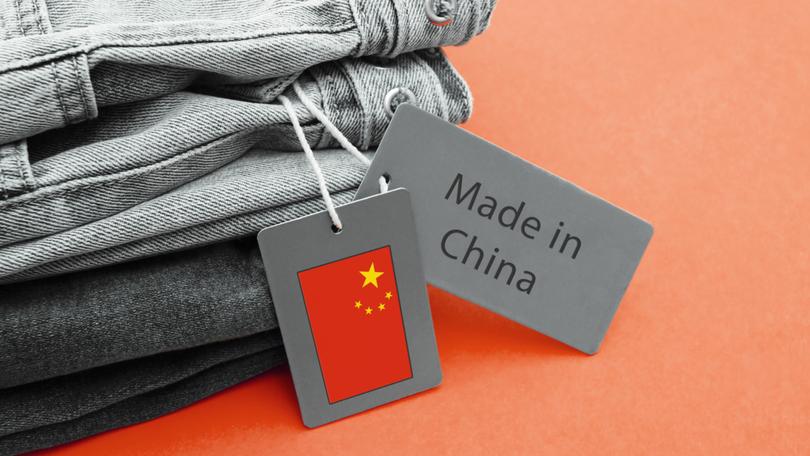THE ECONOMIST: Is Shein the online fashion giant cut from Chinese cloth?
With headquarters in Singapore, employees in China, and shares due to be listed in London, the matter of nationality has become a vexed question

To which country does Shein belong?
The online apparel giant, headquartered in Singapore, is expected to list its shares in London in the coming months.
Earlier this year Donald Tang, its executive chairman, proclaimed it to be American, by virtue of its values and the fact that it makes most of its money there.
Sign up to The Nightly's newsletters.
Get the first look at the digital newspaper, curated daily stories and breaking headlines delivered to your inbox.
By continuing you agree to our Terms and Privacy Policy.Meanwhile, most of Shein’s employees are in China, where the company was founded in 2012.
All this might suggest Shein is multinational, beholden to no single country. Unfortunately, the matter of nationality is not so straightforward for a firm that straddles China and the West.
Shein is part of a new generation of innovative Chinese companies that have taken the rich world by storm.
It now accounts for half of fast-fashion sales in America, and is expected to sell around $50 billion worth of cheap blouses, skirts and other clothing and accessories globally this year, up from roughly $32b in 2023.
That is about as much as H&M and Zara, the West’s two biggest fast-fashion brands, combined.

Temu, an overseas offshoot of Pinduoduo, a Chinese e-commerce company, has enjoyed similar success.
Some 170 million Americans use TikTok, a video-sharing app controlled by ByteDance, a Chinese tech firm.
Chinese companies in industries from gaming to electric vehicles are also expanding in Western markets.
Consumers in the West have lapped up these new offerings.
The enthusiasm, however, has not been shared by their governments, which fear that Chinese companies will pilfer citizens’ data or undermine national security.
Last year America passed a law requiring ByteDance either to sell TikTok or leave the country (though its future is uncertain under Donald Trump, who has flip-flopped on the issue).
American lawmakers are investigating Shein and Temu over allegations of forced labour in their supply chains (which the companies deny).
And in September, America’s government said it planned to remove a trade rule that exempts imports worth less than $800 from customs duties, from which the two firms benefit.
At the same time, Chinese officials have also grown suspicious of these globe-trotting firms, fearing that they will leak sensitive information to foreign adversaries or wriggle their way out of the Communist Party’s grip.
In response, many Chinese multinationals are playing down their ties to the country.
On November 14, BeiGene, a drugmaker whose name is a nod to the capital city, said it would rebadge itself as BeOne Medicines.

Hundreds of Chinese firms have, like Shein, moved their headquarters to Singapore.
But Shein has gone further than most in its efforts to redefine itself as a global, rather than a Chinese, company.
It does not sell its wares in China (where it goes by the name Xiyin) and says that it increasingly resembles any other global firm that sources its products from the country.
Yet its experience shows just how difficult it is for companies born in China to untether themselves from it.
Consider first Shein’s operational footprint.
About 10,000 of its 16,000-strong workforce were based in China at the end of last year, according to regulatory disclosures.
Partly that is because Shein relies heavily on Chinese factories.
The company’s former headquarters in Guangzhou, still its biggest office globally with almost 5000 staff, is focused mainly on logistics and managing relations with its suppliers.
In a nearby area known as “Shein Village”, tens of thousands of people work in factories making garments for the company (they are not directly employed by Shein).
The office in Guangzhou is nondescript; there is no logo on the building identifying its main tenant.
When your correspondent visited last month the only indication of Shein’s presence was a large cake-shaped balloon inflated in the entryway to celebrate the company’s 12th birthday.
Shein’s base in China is about more than managing its supply chain, though.
The company’s ability to use data to develop algorithms that accurately predict customer demand has been central to its success.
The vast majority of that work still happens at home.
It would be very difficult, says a consultant familiar with the company, to replace or relocate the people needed to maintain those operations.
In Nanjing, where the company was founded, executives work on its branding strategy.
Shein still refers to the office there as its “global operations centre” in some documents.
Two subsidiaries in Shanghai, which employed around 500 people between them at the end of last year, work on product design, digital marketing and managing relations with TikTok influencers who are paid to advertise for the company.
And Shein‘s footprint in the country is expanding.
As of last month, the firm was hiring for nearly 1900 positions in 13 cities, including Shenzhen and Shanghai, where it is adding to a team that processes data and helps develop its algorithms.
A second illustration of the difficulty of Shein’s position comes from its proposed overseas listing.
Foreign initial public offerings (IPOs) by Chinese firms have plummeted in recent years as China’s government has signalled its disapproval, most visibly by forcing DiDi, a ride-hailing service, to delist in America in 2022.
Chinese businesses raised a record $53b through foreign listings in 2014, according to LSEG, a financial markets group.
This year they have raised less than $5b.
Shein may have hoped that, having forgone the domestic market, its IPO would attract less scrutiny from China.
Companies with fewer than one million online Chinese users do not need to submit to a review by the country’s cybersecurity administration before listing their shares abroad.
Shein has been careful to keep a low profile in China.
Xu Yangtian, its founder and chief executive, has eschewed media interviews; few photos exist online of the 40-year-old billionaire.
The company’s reluctance to shift work abroad may further reflect its wariness of incurring the government’s displeasure.
A person close to the business says that Chinese authorities keep close tabs on what digital operations are done within the country and what is moved overseas.

Never gonna give you up
Despite all this, Shein has not been spared.
The cybersecurity watchdog has launched a review of how the company manages data on its suppliers and logistics within China, according to the Wall Street Journal, and Shein has had to seek permission from China’s government for its foreign flotation.
The murky, unofficial process it must now go through highlights the “embedded political risks” that investors will have to consider when valuing the company, says Drew Bernstein of MarcumAsia, an accounting firm.
Growing concern over those risks has contributed to the sharp downward revisions to Shein’s valuation over the past two years.
A funding round in 2022 that included General Atlantic and Tiger Global, two American private-equity firms, valued Shein at around $100b.
Last year it was valued at just $66b, and private share sales earlier this year reportedly put the figure at less than $50b.
Shein’s base in China has helped it develop an innovative service that millions of shoppers around the world enjoy, with little regard to their nationality.
For as long as both Washington and Beijing view it as Chinese, though, investors may have to do the same.
Originally published as How Chinese is Shein?
